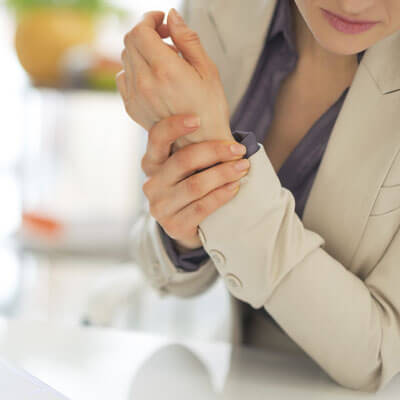Arthritis in Dulwich Hill
 Arthritis (also known as degenerative joint disease) can be a scary diagnosis for our My Back Relief Clinic patients, often stirring images of deformed fingers and hobbling hip pain. The most common type of arthritis, osteoarthritis, is a natural process that happens in the body, causing wear and tear of joints. This wear and tear can cause inflammation in the joints, which results in pain and stiffness. Many people worry about osteoarthritis and joint pain.
Arthritis (also known as degenerative joint disease) can be a scary diagnosis for our My Back Relief Clinic patients, often stirring images of deformed fingers and hobbling hip pain. The most common type of arthritis, osteoarthritis, is a natural process that happens in the body, causing wear and tear of joints. This wear and tear can cause inflammation in the joints, which results in pain and stiffness. Many people worry about osteoarthritis and joint pain.
Diagnosing Osteoarthritis
Generally, a health practitioner can diagnose osteoarthritis through a thorough history and examination. X-rays are useful in determining how mild or how severe your arthritis may be.
Causes of Osteoarthritis
Although osteoarthritis can be a natural part of ageing, you should be developing arthritis equally throughout all joints. However, this is not always the case and in our clinic, it’s not uncommon to see certain parts of patients’ bodies to be more worn and torn than others.
There are several reasons why patients may present with arthritis in certain joints but not others. Some that we commonly see in our clinic are
- Previous injuries. Crash whiplash injuries can cause accelerated arthritis in the neck compared to the rest of the spine.
- Ineffective body mechanics. If an individual has joints that have decreased flexibility, those areas develop arthritis faster compared to other joints.
- Repetitive wear and tear. An example of this is a worker whose job involves repetitive lifting, and who may get arthritis in their big load-bearing joints such as the knee, hips or low back as a result.
- Prolonged pressure on joints over time. Prolonged head flexion looking down at a laptop or smartphone may cause accelerated arthritis in the neck over other joints.
What Can I Do for Arthritis?
Due to the nature of these conditions, often arthritis cannot be stopped with physical therapies. Thus, the aim of chiropractic isn’t necessarily to reverse the arthritis, but to improve function of the joints and in turn decrease pain levels and improve quality of life. We are often still able to perform adjustments to affected joints; however, we try to be as specific and as gentle as possible.
Arthritis and Joint Pain FAQs
Could someone with rheumatoid arthritis benefit from chiropractic care?
Can a chiropractor help with knee arthritis?
Can a chiropractor help with arthritis in hands?
Can a chiropractor help with arthritis in the hip?
Can chiropractors help with joint pain?
Can chiropractors help with inflammation?
Schedule Care Today
Contact us today to book an appointment with one of our chiropractors.
CONTACT US »

